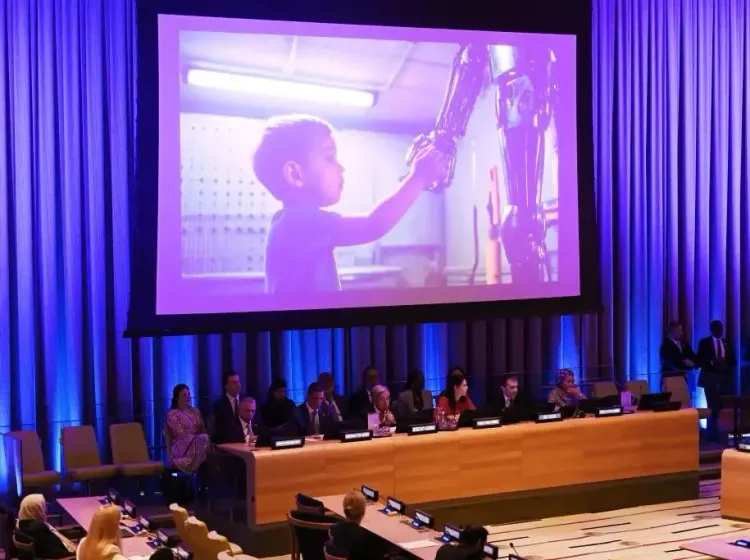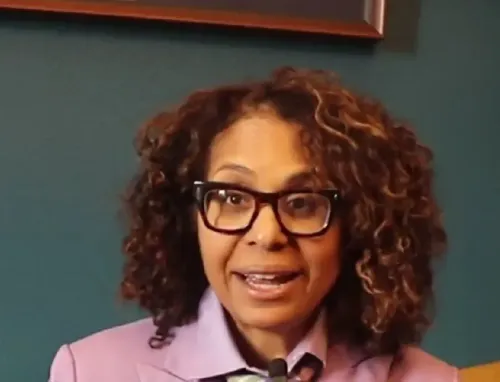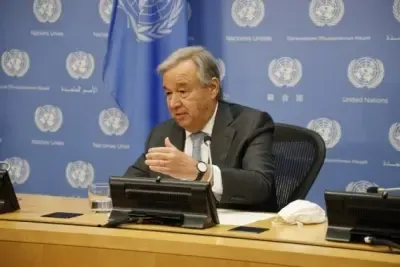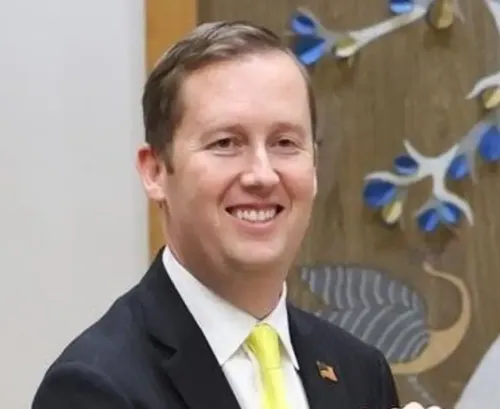What is the Global Dialogue on AI Governance launched at the United Nations?

Synopsis
Key Takeaways
- The Global Dialogue on AI Governance was officially launched at the United Nations.
- The initiative aims to ensure that every nation has a voice in AI governance.
- Three fundamental pillars of AI governance are policy, science, and capacity.
- Goals include promoting safe and trustworthy AI systems and enhancing global cooperation.
- The dialogue is vital for addressing ethical and societal implications of AI.
United Nations, Sep 26 (NationPress) - The Global Dialogue on Artificial Intelligence (AI) Governance has officially commenced at the United Nations.
"The discussion is no longer about if AI will revolutionize our lives -- it is already happening," stated UN Secretary-General Antonio Guterres during the High-level Multi-Stakeholder Informal Meeting on Thursday for the launch of this dialogue.
"The critical question is whether we will collectively manage this transformation or allow it to dictate our future," he emphasized.
Reflecting on the adoption of the Global Digital Compact one year ago, which stands as the first universal agreement on AI governance, Guterres noted that today marks the establishment of essential foundations for a global AI ecosystem capable of adapting to the rapid advancements in technology, as reported by Xinhua.
This framework is built upon three vital pillars -- policy, science, and capacity. "This embodies multilateralism at its finest -- agile, inclusive, and rooted in shared responsibility," he articulated.
Guterres pointed out that the objectives of the Global Dialogue are well-defined: to foster safe, secure, and trustworthy AI systems; to enhance interoperability among governance frameworks; and to stimulate open innovation accessible to everyone.
He highlighted that the United Nations offers a uniquely universal platform for global collaboration, ensuring that for the first time, every nation will have representation in AI discussions.
According to Guterres, this dialogue will consider the multifaceted implications of AI -- social, economic, ethical, technical, cultural, and linguistic -- and will complement existing global efforts, including those by the OECD, G7, and regional organizations, providing a stable and inclusive hub for AI governance coordination.
"In essence, this initiative aims to create a forum where governments, industries, and civil societies can work together towards common solutions," he remarked.
The establishment of the International Independent Scientific Panel on AI within the UN is another significant milestone, according to the UN chief.
Regarding capacity, Guterres mentioned that he recently presented a report outlining financing options for AI capacity building, which details actionable pathways to bridge the AI divide.
The three pillars of policy, science, and capacity are indispensable for establishing clarity, fostering trust, diminishing inequalities, and accelerating progress for all, he stated.
"The printing press broadened our perspectives. The Industrial Revolution transformed societies. The internet interconnected lives across the globe," noted Annalena Baerbock, president of the UN General Assembly, during the meeting.
The Global Digital Compact represents the world's first collective agreement on AI governance, and from this foundation, both the International Independent Scientific Panel on AI and the Global Dialogue on AI Governance have emerged, she stated.
"The aim of this dialogue is to guarantee that every nation, regardless of size, has a voice in shaping this technology," she added.
Baerbock cautioned that while the AI market is valued in trillions of US dollars, its advantages are disproportionately distributed, with much of the world, particularly the Global South, left behind.
She expressed concerns about AI's significant energy consumption, which, unless addressed with clean energy solutions, could exacerbate the climate crisis instead of offering solutions.
"We need to leverage its potential, mitigate its risks, and broaden its accessibility," she urged.
The high-level meeting, occurring alongside the ongoing High-level Week of the 80th session of the UN General Assembly, has gathered member states, observers, UN specialized agencies, and various stakeholders to initiate the Global Dialogue on AI Governance and to delve into the critical aspects of inclusive and accountable AI governance.








